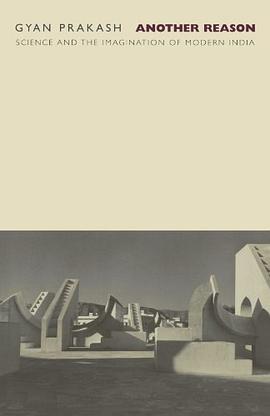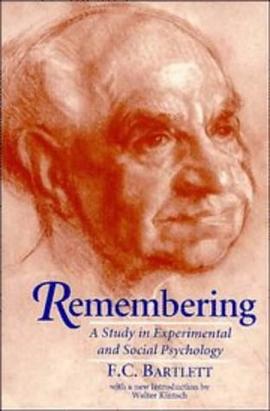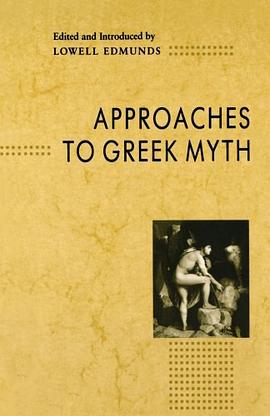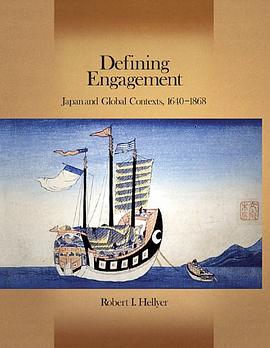

具體描述
Another Reason is a bold and innovative study of the intimate relationship between science, colonialism, and the modern nation. Gyan Prakash, one of the most influential historians of India writing today, explores in fresh and unexpected ways the complexities, contradictions, and profound importance of this relationship in the history of the subcontinent. He reveals how science served simultaneously as an instrument of empire and as a symbol of liberty, progress, and universal reason--and how, in playing these dramatically different roles, it was crucial to the emergence of the modern nation.
Prakash ranges over two hundred years of Indian history, from the early days of British rule to the dawn of the postcolonial era. He begins by taking us into colonial museums and exhibitions, where Indian arts, crafts, plants, animals, and even people were categorized, labeled, and displayed in the name of science. He shows how science gave the British the means to build railways, canals, and bridges, to transform agriculture and the treatment of disease, to reconstruct India's economy, and to transfigure India's intellectual life--all to create a stable, rationalized, and profitable colony under British domination.
But Prakash points out that science also represented freedom of thought and that for the British to use it to practice despotism was a deeply contradictory enterprise. Seizing on this contradiction, many of the colonized elite began to seek parallels and precedents for scientific thought in India's own intellectual history, creating a hybrid form of knowledge that combined western ideas with local cultural and religious understanding. Their work disrupted accepted notions of colonizer versus colonized, civilized versus savage, modern versus traditional, and created a form of modernity that was at once western and indigenous.
Throughout, Prakash draws on major and minor figures on both sides of the colonial divide, including Mahatma Gandhi, Jawaharlal Nehru, the nationalist historian and novelist Romesh Chunder Dutt, Prafulla Chandra Ray (author of A History of Hindu Chemistry), Rudyard Kipling, Lord Dalhousie, and John Stuart Mill. With its deft combination of rich historical detail and vigorous new arguments and interpretations, Another Reason will recast how we understand the contradictory and colonial genealogy of the modern nation.
Reviews:
"Prakash offers a fascinating analysis. . . . The meticulous research and the compelling narrative make this a highly recommended book."--Choice
"Another Reason is an intelligent, sophisticated and lucid work of scholarship, which fills a major gap in the historiography of India."--Zaheer Baber, Times Literary Supplement
Endorsements:
"In this tour de force of historical scholarship and archival invention, Gyan Prakash focuses on the political culture of scientific thought as the crucible of emergent Indian nationalism. He produces a brilliant genealogy of 'colonial modernity,' agile and attentive to contemporary postcolonial questions: the contradictory desires for both science and tradition, 'newness' and orthodoxy, the secular and the sacred. Immersed in such complexities, Prakash retrieves the aspirational, progressive voices of the freedom movement to address contemporary Indian life. This is a superb work of historical revision by a writer of great insight and imagination."--Homi Bhabha, University of Chicago
"This is a pathbreaking work. It adds a new dimension to the study of colonialism by holding up the mirror of science to the Raj and reciprocally that of governmentality to science in a colonial condition. Caught up in this double reflection, the problem of modernity appears in a fresh but disturbing light. A truly brilliant achievement."--Ranajit Guha
"Gyan Prakash mounts a powerful and sustained argument in this book for treating the dissemination of science in colonial India not, as conventional historiography would have it, as the gradual supersession of backwardness and superstition and the spread of universal enlightenment, but as a case of hybrid growth. As is to be expected from Prakash, the research is meticulous and solid and his presentation is clear and forceful."--Partha Chatterjee, author of The Nation and Its Fragments
Table of Contents:
Acknowledgments ix
CHAPTER ONE The Sign of Science 3
PART ONE SCIENCE AND THE RELOCATION OF CULTURE
CHAPTER TWO Staging Science 17
CHAPTER THREE Translation and Power 49
CHAPTER FOUR The Image of the Archaic 86
PART TWO SCIENCE, GOVERNMENTALITY, AND THE STATE
CHAPTER FIVE Body and Governmentality 123
CHAPTER SIX Technologies of Government 159
CHAPTER SEVEN A Different Modernity 201
CHAPTER EIGHT Divided Love 227
Notes 239
Bibliography 277
Index 295
著者簡介
圖書目錄
讀後感
評分
評分
評分
評分
用戶評價
science as culture and power; a "different" modernity that combined scientific legitimacy and Hinduism nationalism as unintended consequences; body as epistemic battle field
评分science as culture and power; a "different" modernity that combined scientific legitimacy and Hinduism nationalism as unintended consequences; body as epistemic battle field
评分science as culture and power; a "different" modernity that combined scientific legitimacy and Hinduism nationalism as unintended consequences; body as epistemic battle field
评分science as culture and power; a "different" modernity that combined scientific legitimacy and Hinduism nationalism as unintended consequences; body as epistemic battle field
评分science as culture and power; a "different" modernity that combined scientific legitimacy and Hinduism nationalism as unintended consequences; body as epistemic battle field
相關圖書
本站所有內容均為互聯網搜索引擎提供的公開搜索信息,本站不存儲任何數據與內容,任何內容與數據均與本站無關,如有需要請聯繫相關搜索引擎包括但不限於百度,google,bing,sogou 等
© 2025 book.quotespace.org All Rights Reserved. 小美書屋 版权所有




















